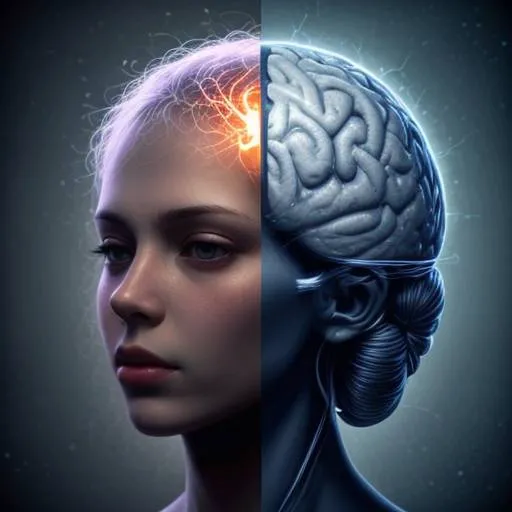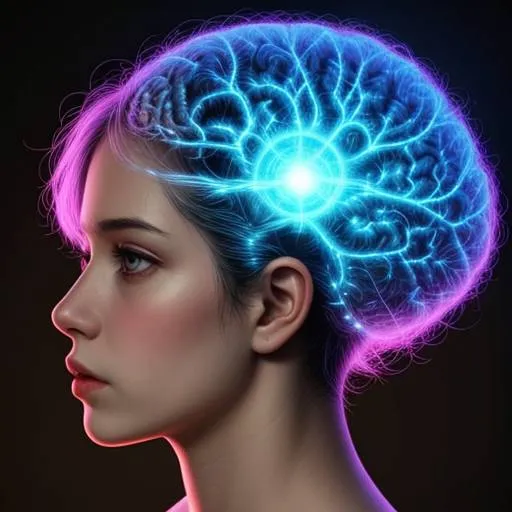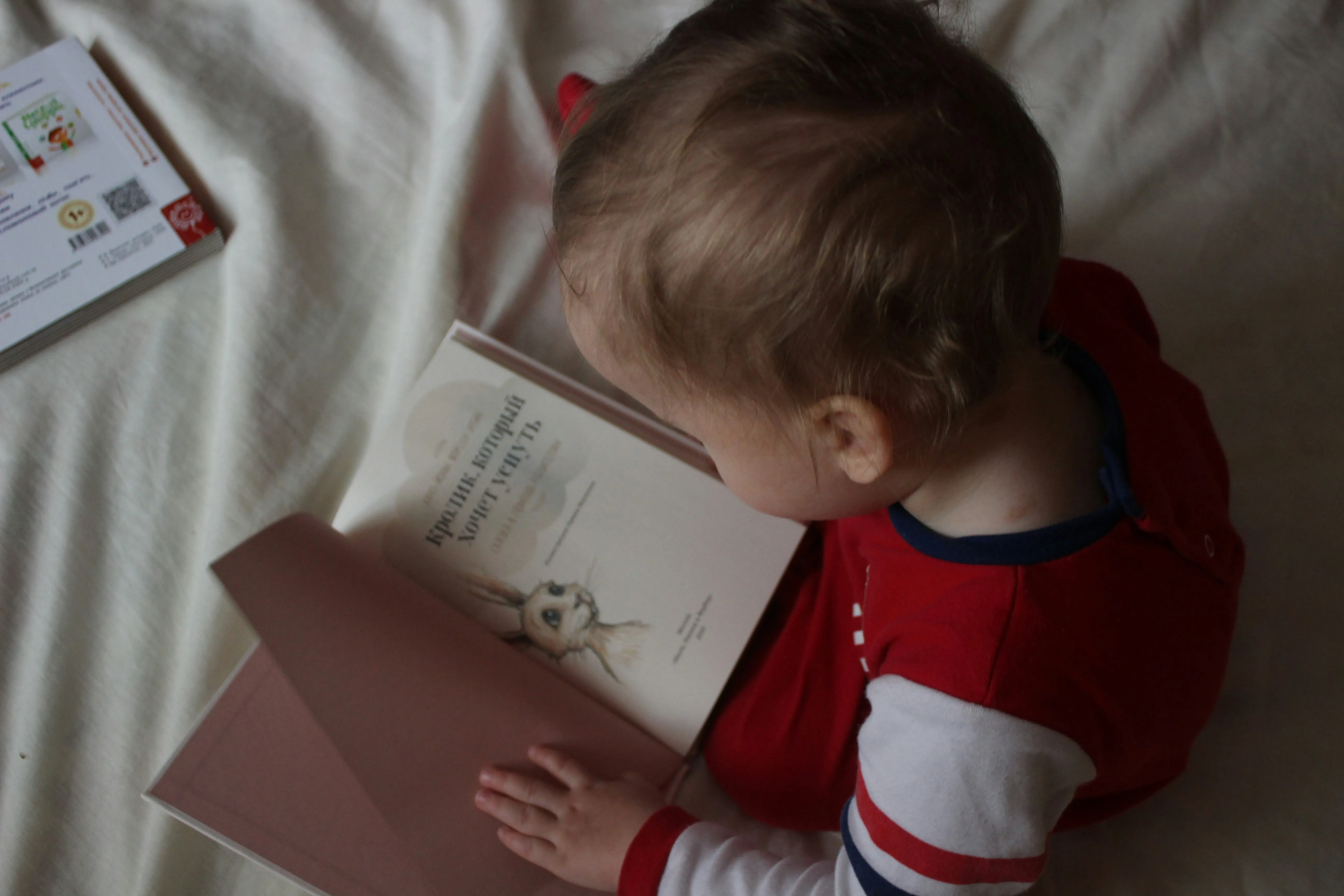How Theory of Mind plays a crucial role in learning
How Theory of Mind Affects Learning

The human mind is a complex and fascinating phenomenon, capable of endless possibilities. One aspect of the mind that has garnered significant attention in recent years is the Theory of Mind, a concept that has important implications for learning and social interaction. This theory explores our understanding of others' thoughts, beliefs, and intentions, allowing us to navigate the social world with greater ease. In this blog, we will delve into the definition and significance of Theory of Mind, its development in children, the empirical investigations surrounding it, deficits that may arise, the practical validity of Theory of Mind, and its impact on various aspects of life, including learning, social interaction, and moral development.
Understanding Theory of Mind

Theory of Mind Highlights
- Understanding the Theory of Mind is essential to grasp its role in learning and social interaction.
- It refers to the ability to recognize and attribute mental states, such as beliefs, desires, and intentions, to oneself and others.
- This cognitive ability allows us to understand that individuals can have different thoughts, beliefs, and intentions than our own, shaping the way we perceive and interact with others.

Definition and Significance
The Theory of Mind plays a crucial role in social cognition, the understanding of others, and the way we navigate social relationships. By recognizing that others possess thoughts and beliefs that may differ from our own, we can better understand their opinions, empathize with their experiences, and engage in more effective communication. This understanding of the Theory of Mind is particularly significant in early childhood, as it sets the foundation for social functioning, emotional development, and the formation of social relationships.
Our understanding of the Theory of Mind also has philosophical and psychological roots. From a philosophical perspective, ToM originates in folk psychology, as it attempts to explain human behaviour in terms of mental states. This concept then found its way into psychological research, specifically in the field of developmental psychology, which studies how mental processes change over the course of a person's life. It is within the realm of cognitive science that the Theory of Mind has been thoroughly examined, shedding light on the cognitive mechanisms underlying our ability to understand others' thoughts and beliefs. These mechanisms include knowledge access, attribution theory, and the ability to mentally simulate the beliefs of others, contributing to our understanding of social behaviour and interaction.
Philosophical and Psychological Roots
Cognitive development is a complex process that involves the interplay of various factors, including biology, genetics, environment, and social interaction. It is through this intricate dance that the ToM begins to take shape in the mind of a child. As children grow and mature, they gradually acquire a deeper understanding of the mental states of others, leading to the development of the Theory of Mind.
Development of Theory of Mind
The development of ToM is a remarkable journey that children embark upon during their early years. As they progress through different stages of childhood, their understanding of others' thoughts, beliefs, and intentions becomes increasingly sophisticated, enabling them to navigate the social world with greater ease.

Role of Language
Language plays a crucial role in the development of ToM. As children acquire language skills, they gain the ability to interpret language cues, such as facial expressions, tone of voice, and verbal cues, which are essential for understanding the intentions and feelings of others. This understanding of language allows children to recognize differences in beliefs, opinions, and desires, expanding their theory of mind capabilities.
Influence of Culture and Age
The development of the Theory of Mind is influenced by cultural and age-related factors. Culture plays a significant role in shaping the understanding of others' mental states, as different cultures may prioritize different aspects of the Theory of Mind development. Additionally, ToM development evolves with age and social interaction, as children become more adept at understanding social cues, facial expressions, and the intentions of others.
Empirical Investigation of Theory of Mind

To gain a deeper understanding of the Theory of Mind, researchers have conducted empirical studies examining its development, assessment, and impact.
False-Belief Task
One of the most widely used and fundamental tasks in the assessment of the Theory of Mind is the false-belief task. This task measures an individual's ability to understand that others can hold false beliefs, beliefs that are different from reality. The false-belief task has been instrumental in revealing the developmental trajectory of the Theory of Mind, as well as the understanding of false beliefs in various populations, including individuals on the autism spectrum.
Other Tasks and Their Impact
In addition to the false-belief task, other ToM tasks have been developed to further explore our understanding of others' thoughts, intentions, and beliefs. These tasks assess different aspects of ToM, such as understanding mental states, social functioning, and joint attention. By engaging in these tasks, researchers can gain valuable insights into the development of theory of mind, as well as the impact of theory of mind abilities on social functioning and the interpretation of others' actions.
Deficits in Theory of Mind
While ToM development is a typical developmental milestone, there can be deficits in Theory of Mind abilities. Some individuals, particularly those on the autism spectrum, may experience difficulties in understanding others' thoughts, beliefs, and intentions. This deficit in ToM can significantly impact social communication, social interaction, and the formation of social relationships.
Practical Validity of Theory of Mind
The Theory of Mind concept has practical validity that extends beyond research studies, affecting everyday life, social psychology, social competence, and human behaviour. (social psychology, social competence, everyday life) By understanding the Theory of Mind, we can apply its principles to various aspects of life, including social skills development, social interaction, and even social psychology research. The Theory of Mind holds the potential to unlock a deeper understanding of human behaviour and the intricacies of the social world.
Real-Life Applications
Theory of Mind understanding has meaningful applications in real life, particularly in the development of social skills and social interaction. (social skills, social interaction, human behaviour) By understanding the thoughts, beliefs, and intentions of others, individuals can navigate social situations more effectively, engage in more meaningful social interactions, and develop stronger social relationships. Theory of Mind understanding also influences human behaviour, as it shapes the way individuals interpret and respond to the actions of others (social skills, social interaction, human behaviour).
Benefits in Learning and Social Interaction
Theory of mind understanding extends beyond the realm of social skills, having a profound impact on learning and social interaction in general. (social cognition, mental state, social relationships) Understanding the theory of mind allows individuals to engage in social cognition, the ability to understand social situations, and the mental states of others. This understanding is crucial for effective communication, interpreting social cues, and navigating social relationships. It also shapes the way individuals perceive the intentions and actions of others, contributing to a deeper understanding of social behaviour (social cognition, mental state, social relationships).
Theory of Mind in Adult Learning

The theory of mind is not limited to childhood development but also has implications for adult learning, social interaction, and lifelong learning. (adult learning, social interaction, lifelong learning) While the theory of mind development begins in early childhood, it continues to develop and influence social interaction and learning throughout the lifespan.
Role in Learning Languages
Theory of mind understanding plays a significant role in the acquisition of language skills, as well as the understanding of social cues in language learning. (language acquisition, bilingualism, social cues) By understanding the intentions, beliefs, and mental states of others, individuals can better grasp the nuances of language, including social cues embedded within communication. Theory of mind understanding aids in interpreting facial expressions, understanding different beliefs, and navigating social nuances in language learning (language acquisition, bilingualism, social cues, cognitive abilities).
Effect on Social Interactions

Theory of mind understanding has a profound effect on social interactions among adults, shaping social competence and the understanding of others' mental states. (social competence, understanding of others, mental states of others) By understanding the thoughts, beliefs, intentions, and feelings of others, individuals can engage in more meaningful social interactions, fostering stronger social relationships, and enhancing their overall social competence. Theory of mind understanding allows individuals to interpret social situation cues, engage in joint attention tasks, and accurately perceive the mental states of others, contributing to a deeper understanding of social interaction (social competence, understanding of others, mental states of others).
How to Nurture Theory of Mind in Early Childhood

Early childhood is a critical period for the development of theory of mind, and there are ways to nurture and support its growth. (early childhood, child development, social interaction) By promoting specific behaviours and activities, parents and educators can foster the development of the theory of mind in young children, setting them up for success in social interaction, communication, and understanding others.
Imitation and Intentionality
Encouraging imitation in early childhood can help children grasp the intentions of others and develop a theory of mind. (mirror neurons, intentions of others, imitation learning) Through imitation, children learn to understand the intentions behind others' actions, as well as the mental states that drive those actions. By intentionally engaging in imitation and understanding the intentions of others, children can develop a deeper understanding of the theory of mind and social cognition (mirror neurons, intentions of others, imitation learning, child development).
Encouraging Active Attention to Others
Fostering an environment that encourages children to actively pay attention to others is another way to nurture the development of theory of mind. (joint attention, social cues, understanding others) By promoting joint attention and directing children's attention towards social cues, parents and educators can support the development of theory of mind. Joint attention and active attention to others provide children with the opportunity to understand different beliefs, intentions, and mental states, contributing to the sequential progressions of the theory of mind (joint attention, social cues, understanding others, cognitive development).
How Does Theory of Mind Impact a Child's Moral Stance?

ToM has a significant impact on the development of a child's moral stance, shaping their understanding of empathy, social understanding, and moral behaviour. (moral development, empathy, social understanding) By understanding others' thoughts, feelings, and intentions, children develop the ability to empathize with others, understanding the impact of their actions on others. This understanding of others' mental states contributes to the development of social understanding, which, in turn, influences a child's moral behaviour and ability to navigate social relationships (moral development, empathy, social understanding, and child development).
Conclusion
In conclusion, Theory of Mind plays a crucial role in learning and social interaction. It helps individuals understand the thoughts, beliefs, and intentions of others, which is essential for effective communication and empathy. Empirical investigations, such as the False-Belief Task, have provided valuable insights into the development and deficits of Theory of Mind. Moreover, nurturing Theory of Mind in early childhood through imitation, intentionality, and active attention to others can have long-term benefits for a child's moral stance and social skills.
To learn more about Theory of Mind and its impact on learning, sign up for our newsletter. Stay informed and gain a deeper understanding of this fascinating field. Don't miss out on the opportunity to enhance your knowledge and professional growth.
Sign up today!
Frequently Asked Questions
What Is The Theory of Mind?
The Theory of Mind refers to the ability to understand and attribute mental states to oneself and others. It involves recognizing that others have their own beliefs, desires, intentions, and emotions. This understanding develops in children around age 4 and continues to develop throughout life, impacting social interactions, communication, empathy, and learning.
How does the Theory of Mind relate to empathy and social cognition?

ToM is closely related to empathy and social cognition, as it provides the foundation for understanding others' mental states and engaging in social interaction (empathy, social cognition, social understanding). Empathy involves understanding and sharing the emotions of others, which requires a theory of mind. Social cognition refers to the ability to understand social situations, including the intentions, beliefs, and mental states of others, which also requires theory of mind. The development of theory of mind is crucial for effective communication, emotional regulation, and social interaction, as it allows individuals to recognize and respond to the thoughts, feelings, and intentions of others (social cognition, social understanding, theory of mind definition, theory of mind meaning).
How is the Theory of Mind related to other cognitive abilities, such as language and executive function?
ToM is closely related to language development, social cognition, and executive function, as it relies on the understanding of others' mental states and the ability to attribute mental states to oneself and others (cognitive abilities, executive function, language). Language development plays a significant role in the theory of mind, as understanding language cues, such as facial expressions, tone of voice, and verbal cues, is essential for interpreting others' thoughts, beliefs, and intentions (language, cognitive development, social cognition, theory of mind definition psychology). Executive function, including decision-making and problem-solving, is also linked to theory of mind, as it requires understanding others' perspectives and beliefs (cognitive abilities, executive function). Children with strong theory of mind skills tend to have better communication and social skills, which contribute to their overall cognitive abilities and learning outcomes (cognitive abilities, language, executive function, theory of mind meaning, theory of mind definition psychology).
Are there cultural differences in the development of the Theory of Mind?
Yes, there are cultural differences in the development of the theory of mind. Research suggests that children from collectivist cultures, where the group's needs and goals take precedence over individual needs, may develop theory of mind skills earlier than children from individualistic cultures, where individual needs and goals are emphasized (cultural differences, development of theory of mind). Cultural differences, such as the way parents and caregivers talk about emotions and mental states, may influence the development of the theory of mind in children. However, more research is needed to fully understand the role of culture in the development of theory of mind (cultural differences, development of theory of mind, individual differences).
How does the Theory of Mind relate to Mind-Mindedness?
Theory of Mind (ToM) and mind-mindedness are distinct but interconnected concepts within the field of psychology. ToM refers to the ability to attribute mental states—beliefs, intents, desires, emotions, knowledge, etc.—to oneself and others and to understand that others have beliefs, desires, and intentions that are different from one's own[1]. This cognitive capacity is crucial for social interactions as it allows individuals to interpret and predict the behaviour of others based on their mental states.
See our article on Mind-Mindedness here
Mindfulness, on the other hand, is the practice of being fully present and engaged in the moment, aware of one's thoughts and feelings without judgment[2][5]. It is a state of open, nonjudgmental awareness of current experiences, which can include thoughts, sensations, and emotions. Mindfulness is often developed through meditation practices and is associated with a range of benefits, such as reduced stress and improved emotional regulation.
The relationship between Tom and mindfulness is multifaceted. Mindfulness can enhance one's awareness of their own mental states, which may in turn improve the ability to understand and empathize with the mental states of others, a key aspect of ToM[3][6]. Being mindful can help individuals become more attuned to the subtleties of social interactions and the mental states that underlie them. This heightened awareness can lead to better perspective-taking and empathy, which are components of ToM.
Moreover, mindfulness practices have been shown to have a positive impact on psychological well-being and can influence cognitive processes related to ToM. For instance, mindfulness can reduce anxiety, which may improve ToM abilities by allowing for clearer and more focused thinking about others' mental states[6]. Additionally, mindfulness can help individuals respond more thoughtfully in social situations, potentially leading to more accurate interpretations of others' behaviours and intentions.
In summary, while ToM is a cognitive ability related to understanding others' mental states, mindfulness is a practice that enhances present-moment awareness and acceptance. Mindfulness can support the development of ToM by fostering greater awareness of both one's own and others' mental states, potentially leading to more empathetic and attuned social interactions[3][6].
Related Articles:
Success: A Journey, Not a Destination
Personalized Learning Paths for Success
Wake Windows and Early Cognitive Development
Citations:
[1] https://en.wikipedia.org/wiki/Theory_of_mind
[2] https://www.mindful.org/what-is-mindfulness/
[3] https://www.researchgate.net/publication/321126642_The_Relationship_between_Mindfulness_and_Theory_of_Mind_Moderating_Role_of_Neuropsychological_Schizophrenia_Characteristic
[4] https://www.sciencedirect.com/topics/neuroscience/theory-of-mind
[5] https://greatergood.berkeley.edu/topic/mindfulness/definition
[6] https://pubmed.ncbi.nlm.nih.gov/35307962/
[7] https://dictionary.apa.org/theory-of-mind
[8] https://www.apa.org/topics/mindfulness
[9] https://onlinelibrary.wiley.com/doi/abs/10.1002/pchj.536
[10] https://iep.utm.edu/theomind/
[11] https://www.merriam-webster.com/dictionary/mindfulness
[12] https://www.hilarispublisher.com/open-access/link-between-mindfulness-and-personalityrelated-factors-includingempathy-theory-of-mind-openness-prosocial-behaviour-andsuggestibi-.pdf
[13] https://www.structural-learning.com/post/theory-of-mind
[14] https://en.wikipedia.org/wiki/Mindfulness
[15] https://www.ncbi.nlm.nih.gov/pmc/articles/PMC4201548/
[16] https://www.verywellmind.com/theory-of-mind-4176826
[17] https://www.mind.org.uk/information-support/drugs-and-treatments/mindfulness/about-mindfulness/
[18] https://www.nature.com/articles/s41598-022-11594-x
[19] https://www.ncbi.nlm.nih.gov/pmc/articles/PMC3737477/
[20] https://www.healthline.com/health/mind-body/what-is-mindfulness
[21] https://exploringkodawari.blog/modular-theory-of-mind/
[22] https://youtube.com/watch?v=sH2vTWfMQJ0
[23] https://www.apa.org/monitor/2012/07-08/ce-corner
[24] https://www.sciencedirect.com/science/article/pii/S0010027719302124







































































































































